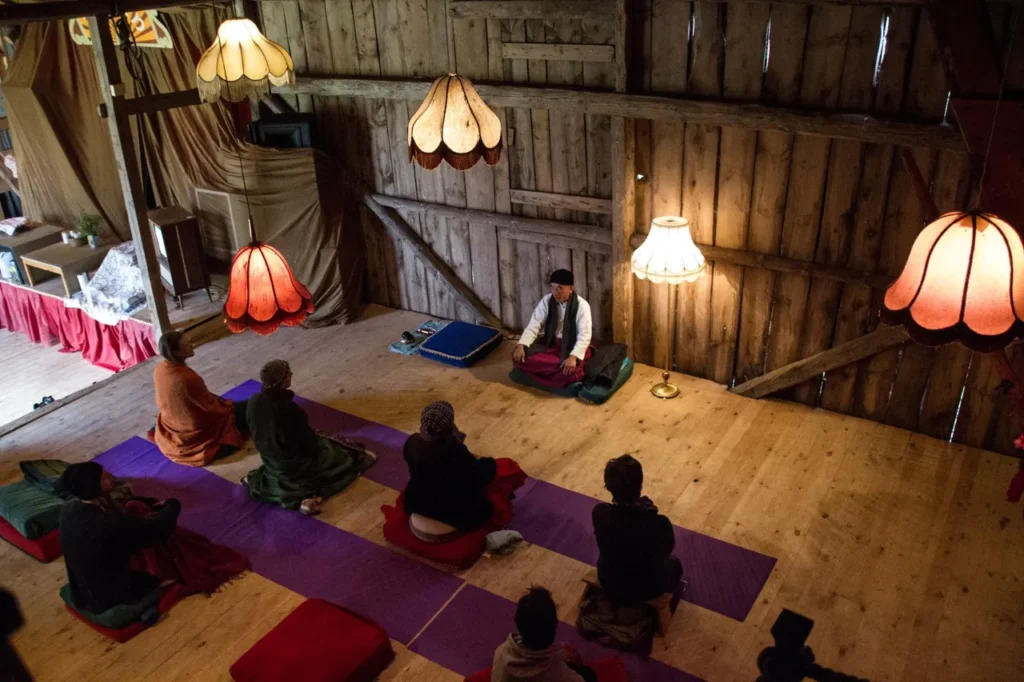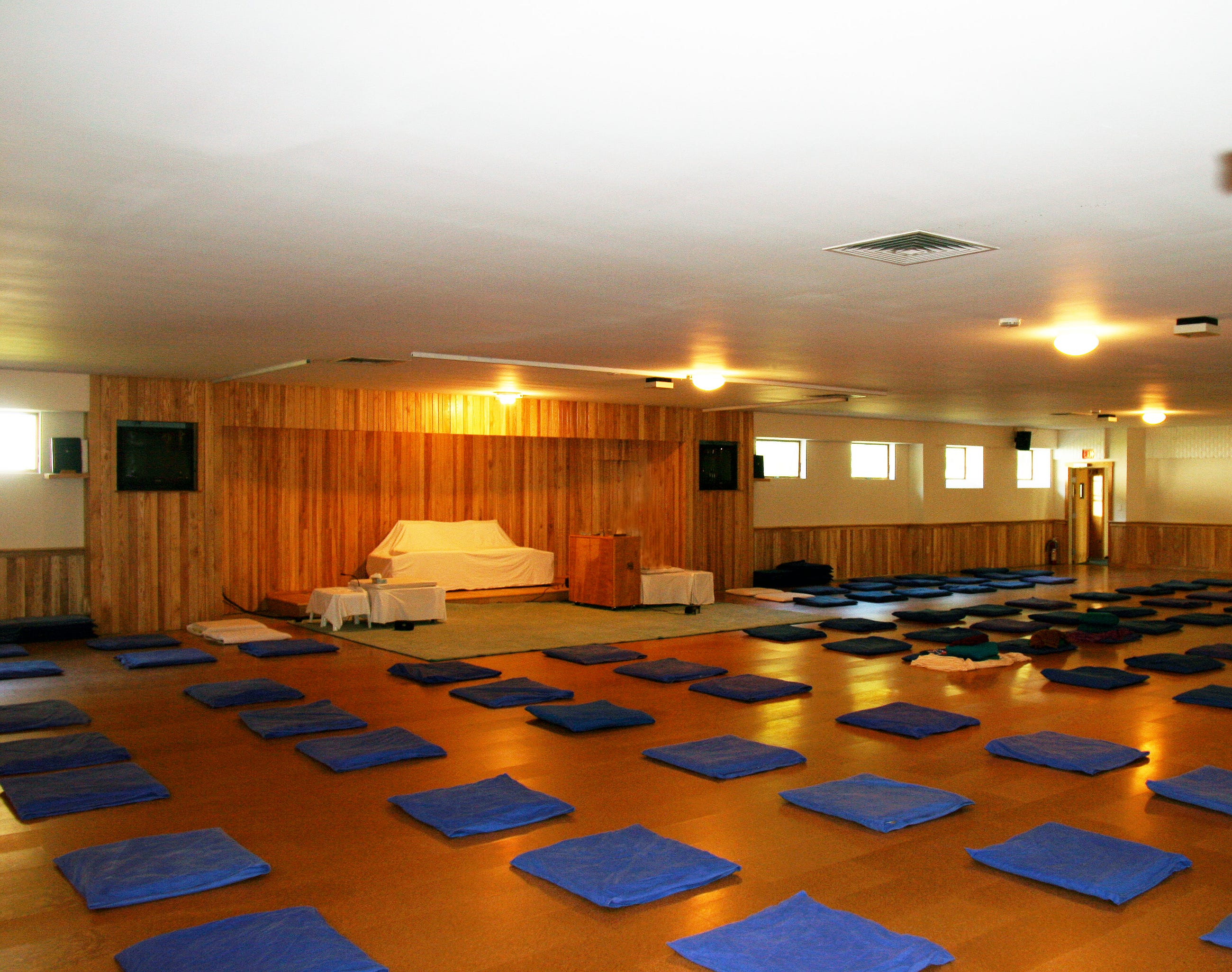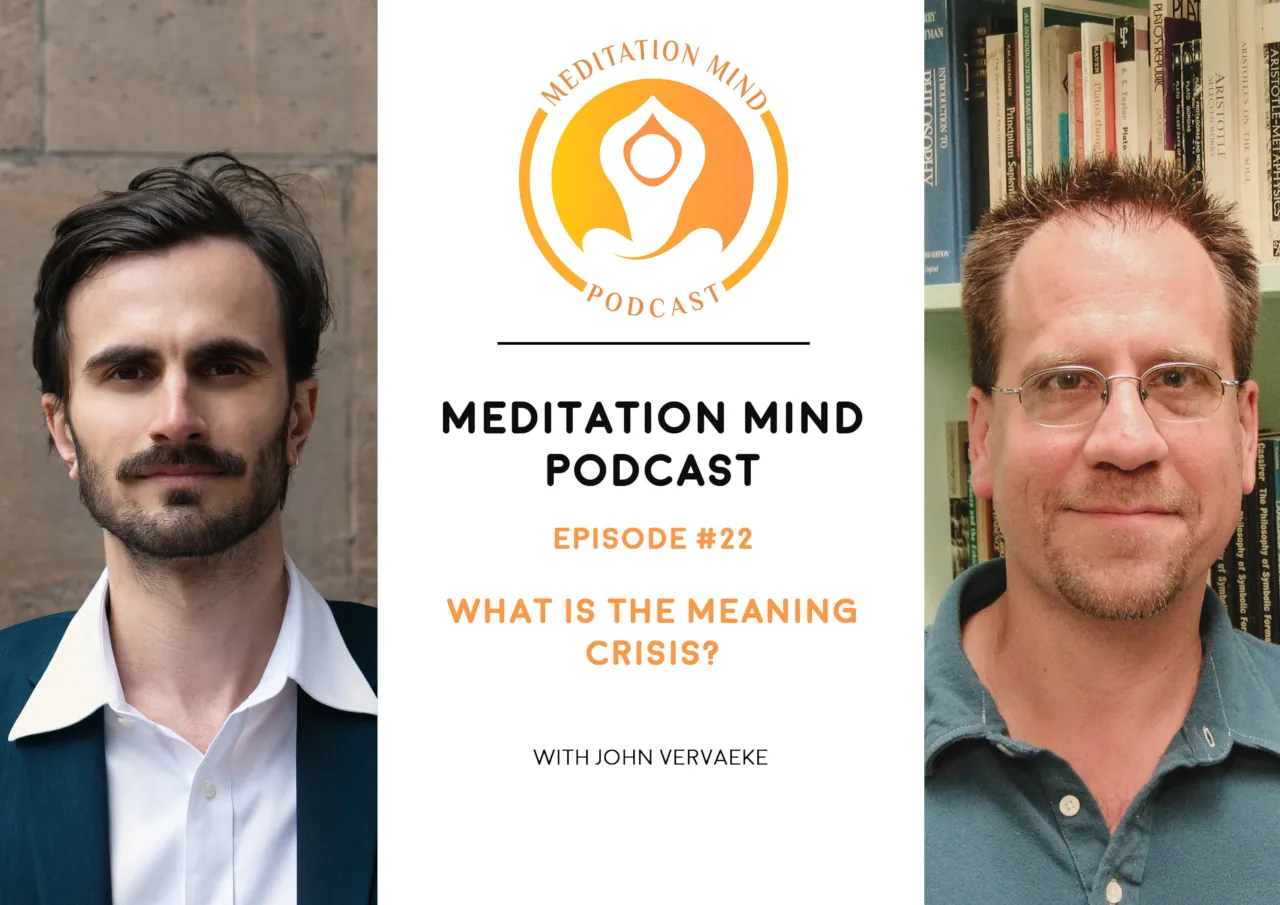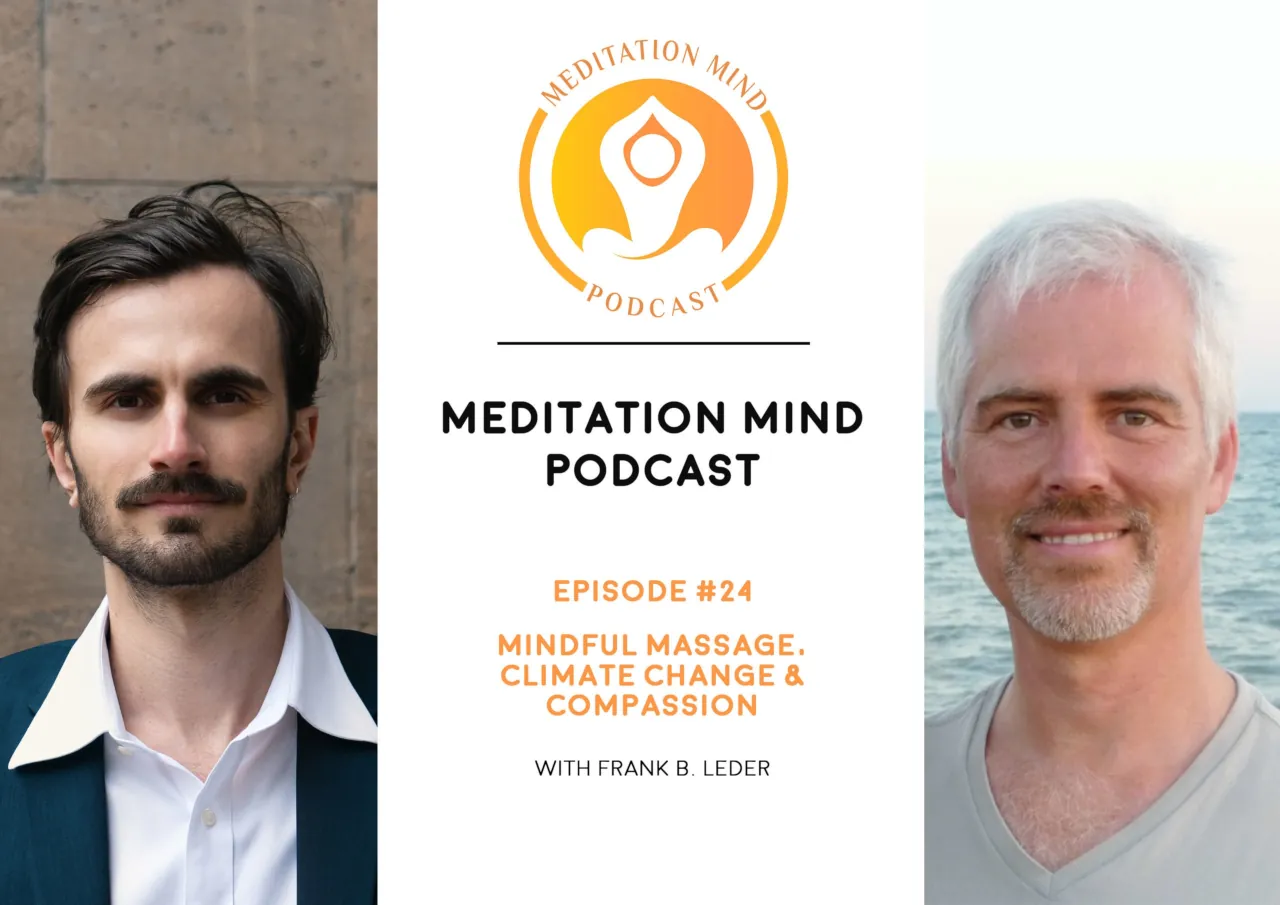
Together with Greg Jacoby, we talk about meditation retreats in this podcast episode. Why should you join one? What should you look for? What are the benefits and risks? Greg has organized and been part of numerous meditation retreats such as the Vipassana 10-day retreats and retreats with Swami J. The summer meditation retreats are coming up and we give you some insight into why you should or shouldn’t join a retreat. Here are our 9 tips to prepare you for your first meditation retreat.
9 tips to prepare yourself for a meditation retreat
1. It’s going to be just you and your mind
Sure, you are together with other people. Yet, in a way, you aren’t. Especially if you are going on a silent retreat, it will mostly be you and your own mind. Your thoughts, emotions, and perceptions will be your main concern. Make sure you are fully committed to the decision of going to a meditation retreat. Make sure you feel comfortable attending a retreat. Don’t stretch yourself too much, if it’s not the right time yet, it isn’t the right time yet. It will be worth it, but simply be prepared to spend some alone time with your mind.

2. Sitting still is hard
Whatever meditation retreat you are going to attend, there will be a lot of sitting meditation involved. Some retreats do 10 hours a day, some do 5 hours a day. In any case, prepare yourself for some serious sitting. We can tell you, it will be hard. There will be times you might wish to be somewhere else entirely. We can only say, it will be worth it. Don’t worry about having the perfect posture too much, but do make sure your knees touch the pillow and your back is straight. If you can’t sit full lotus, just sit in Burmese. Don’t force yourself into something you can’t do for longer than 10 minutes. While it may seem like it, this isn’t a marathon race where you compete with others. This isn’t a time to prove yourself as an extreme athlete. Sitting still is hard, make no mistake about that.
3. It’s not a competition
No doubt at times your mind will start to compare yourself with others and their practice. You might see someone in front of you, or your teacher, sitting perfectly still without moving a single muscle. There might be frustration boiling up and a feeling that you aren’t succeeding. This is normal. Just because someone is sitting still doesn’t mean they are practicing well. Just because someone is moving often, same story. We all have our own things to deal with, our own path to walk, so take your time and accept whatever comes up. It’s not a competition.

4. Take care of yourself
Food and a sleeping place will be provided for. You won’t have to worry about attending to your daily needs in this way. Make sure that you do attend to other needs that might pop up. We are not talking about desires here, but about simple practical things. Are your knees hurting a lot? Maybe try to put a pillow underneath them to make them touch the floor. Have an extreme headache? Try to drink more or possibly even ask for some small medication. While it seems hard to distinguish, you will still be operating under the laws governing our universe. Yes, meditation is training your mind but it’s not going to make you a superhero. Take care of yourself and your needs when necessary. Don’t force yourself too much.

5. Teachers are humans
Weird right? Sometimes it’s hard to imagine someone with so much insight and a perfect posture is anything but a Buddha. We are not telling you they aren’t to be respected, but just make sure you keep your expectations in check. Teachers are humans too, and they will not always see everything and be able to attend to everything. If something they say doesn’t resonate with you, let it be for now. If they do something you feel strange about, just talk with the retreat spokesperson. There is no need to try to pretend they can’t make mistakes. Just keep a certain amount of respect and commit to following their instructions as much as possible.

6. Things might seem extremely annoying
Whether it is that coughing person behind you, or the girl who seems to move like a tree in walking meditation, you might get extremely annoyed by small things. Flies buzzing around your head, the lack of variety in food, your mind will try to find any excuse to get very annoyed. Don’t worry, it’s not them, it’s you. And we mean that in a loving way, it’s your agitated mind that can’t attend the regular playground. Without all the distractions, it will possibly get rather obsessive about small things. Just keep going, it will disappear by itself.
7. Check yourself before you wreck yourself
In the podcast, we talk a bit about the benefits and risks of attending a meditation retreat. What are the risks? Well, working with the mind can be a dangerous thing. If you have a past in mental health issues, especially relating to personality disorders, it might be a good thing to take that into account. Consult your doctor before jumping into this. Meditation isn’t a cure-all solution. It’s a tool to help you deal with life and the mind. So what are the benefits of a retreat? Our mind is constantly busy in daily life dealing and processing things, a retreat can be a time to process and allow yourself space to do this. A time to dedicate to yourself, to deal with unprocessed events and thoughts. A meditation retreat is a perfect time to relax, take a step back and observe what is going on.

8. Not everything works for everyone
It can happen something doesn’t work for you. It might even be that it works for most people but not for you. They say “the exception confirms the rule”. There is no need to worry if something doesn’t work for you. Maybe there is something else on your path that needs attending to. There is a reason there are so many different traditions and teachings who offer meditation. If Zen doesn’t resonate, maybe check out Vipassana. If you don’t feel comfortable with Buddhism, go check out more secular meditation approaches. You don’t have to force yourself into some criterion. Just commit to what you are doing, give it a fair shot and simply move on if it isn’t for you at this time. If you find sitting crushingly hard, maybe find a retreat with more walking meditations. If you practice Hatha Yoga, go find a retreat that does Hatha Yoga.
9. Going back into the normal world after a retreat can be overwhelming
After time in a retreat, things are a bit different. There is probably a lot of calmness and mindfulness in what you do. You might not notice the difference that much, but once you head back into the ‘normal’ world, you will be able to tell the difference. After a silent retreat, you might be overwhelmed with everyone suddenly talking again. We recommend you don’t immediately start getting back fully into your daily life after a retreat. Just take a day or 2 of rest after doing a retreat. Allow yourself the time to process what happened and give it a proper place in your life.
Want to know more?
If you’d like to talk about this podcast or have comments and ideas, please let me know by joining our community on Discord
Simply use @christiaan or send me a DM! I would love to hear from you.
With warm regards,
Christiaan Neeteson
This podcast is available on…
Anchor
Podbean
Apple Podcasts
Stitcher
TuneIn
Pocket Casts
Overcast
Spotify
Breaker
Google Podcasts


